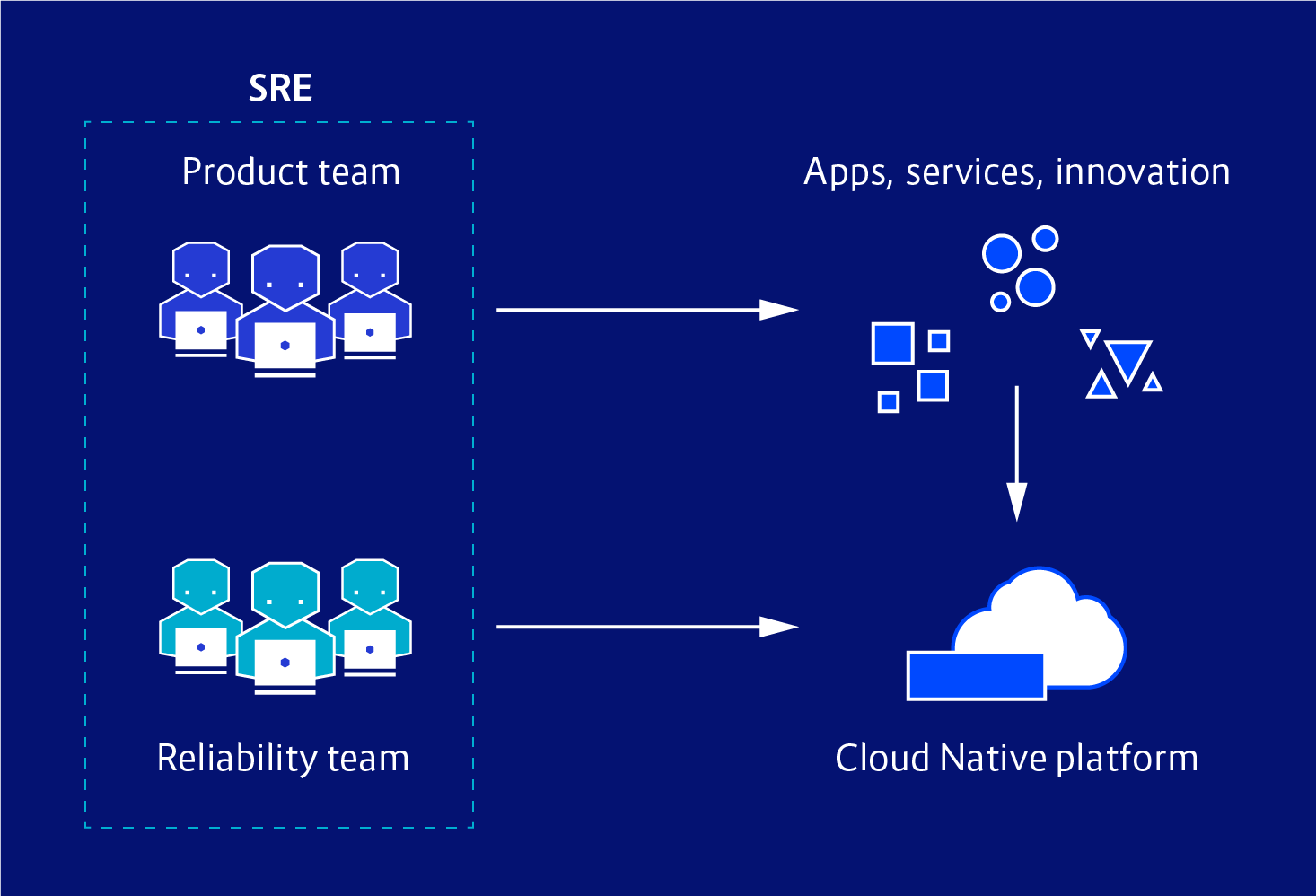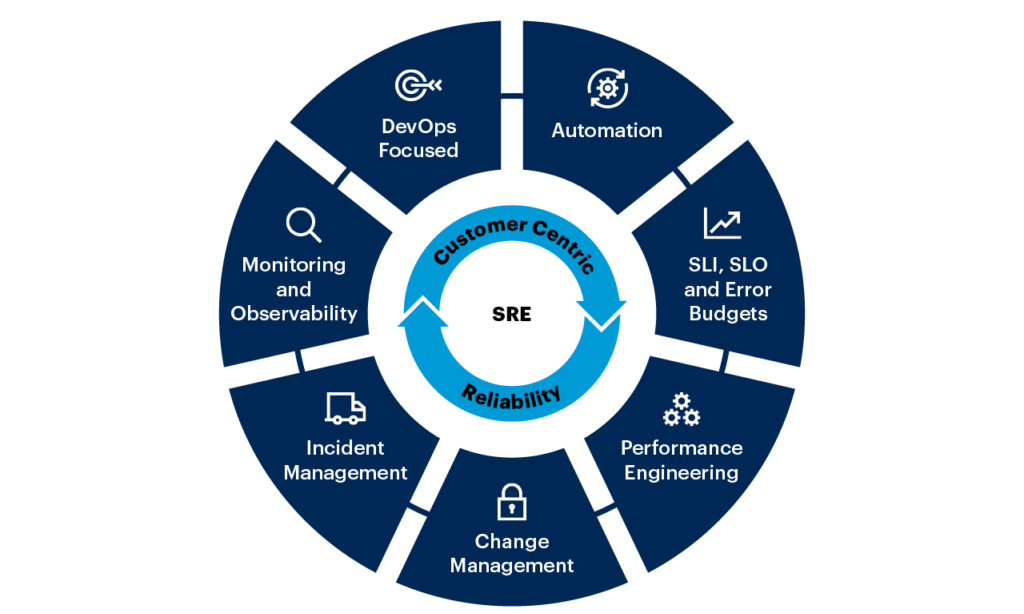
Master in SRE
Duration:45hrs


Master in SRE

Site Reliability Engineering (SRE) is a discipline that incorporates aspects of software engineering and applies them to infrastructure and operations problems. The goal of SRE is to create scalable and highly reliable software systems. SRE originated at Google, where it was developed to manage and maintain some of the world's largest and most complex software systems.
At its core, SRE focuses on automating operations tasks to reduce human error and increase efficiency. This includes activities like deploying new code, managing system configurations, monitoring system performance, and handling incidents. By using software engineering principles, SREs aim to create systems that are self-healing and require minimal manual intervention.


Site Reliability Engineering (SRE) is essential for modern software development and operations because it ensures systems are reliable, scalable, and efficient. By bridging the gap between development and operations, SRE focuses on maintaining high reliability and uptime, using metrics like Service Level Objectives (SLOs) to meet user and business expectations. Automation is a key aspect of SRE, reducing manual intervention and human error through automated deployments, monitoring, and incident response. This automation, coupled with effective capacity planning, enhances scalability and performance optimization, allowing systems to handle increased loads without compromising user experience.
SRE also improves incident management with structured processes for real-time monitoring, alerting, and quick resolution, minimizing downtime and its impact on users. Cost efficiency is achieved by optimizing resources and avoiding over-provisioning. The culture of continuous improvement, driven by post-incident reviews and feedback loops, helps in learning from failures and enhancing system resilience. The use of error budgets balances innovation and reliability, allowing for controlled risk-taking while maintaining system stability.